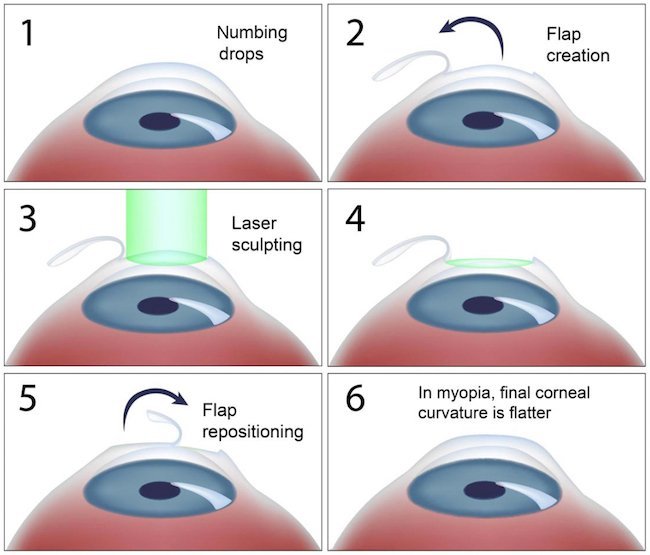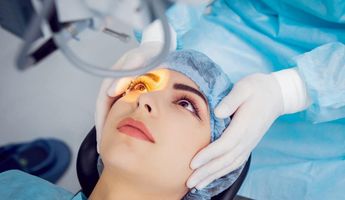Refractive Eye Surgery in Tel Aviv
Find the best clinics for Refractive Eye Surgery in Tel Aviv
No pricing info available
Turkey offers the best prices Worldwide
Price: $ 1,965
From 109 verified reviews
Y N, 22 September 2020
Excellent medical center, with friendly staff and highly qualified doctors.Thank you for your work.My operation was successful
Tel Aviv Sourasky Medical Center (Ichilov Medical Center), located in Arison New Hospitalization Building, Tel Aviv, Israel offers patients Refractive Eye Surgery procedures among its total of 428 available procedures, across 29 different specialties. Currently, there's no pricing information for Refractive Eye Surgery procedures at Tel Aviv Sourasky Medical Center (Ichilov Medical Center), as all prices are available on request only. There are many specialists available at the Clinic, with 13 in total, and they are accredited by JCI Accredited
WHY US?
At Medijump, we're making medical easy. You can search, compare, discuss, and book your medical all in one place. We open the door to the best medical providers worldwide, saving you time and energy along the way, and it's all for FREE, no hidden fees, and no price markups guaranteed. So what are you waiting for?

Free

Best Price

Widest Selection

Risk-Free
What you need to know about Refractive Eye Surgery in Tel Aviv

Refractive eye surgery, or vision correction surgery, are surgical procedures used to fix or improve the refractive state of the eye. It is a simple and safe alternative to glasses or contact lenses. There are various methods of this surgery, including surgical remodeling of the cornea, lens implantation, or lens replacement. Today, the most common method is using excimer lasers to reshape the curvature of the cornea. The cornea is the clear front part of the eye that lets light travel through and focus properly on your retina. Most of the refractive eye surgery can treat a range of very common vision problems, such as nearsightedness (myopia), farsightedness (hyperopia), as well as astigmatism.
Refractive eye surgery is not for everyone. In general, this procedure is appropriate for people with a moderate degree of refractive error and no unusual vision problems. The best candidate for this procedure is people who are at least 18 years of age and not pregnant or nursing. You should also make sure that you have a stable vision over the past year and have no history of active corneal disease or significant medical problems (such as corneal ulcers, diabetic retinopathy, and glaucoma). In some cases, a number of patients will still need to wear sunglasses in certain situations, for example when driving at night. To decide if this procedure is right for you and to determine which technique is most suitable for your condition, your eye surgeon will ask you detailed questions.
There are some cases in which refractive eye surgery is performed on children, usually on children who are cognitive or visual development is failing due to refractive error. Some examples where children will need refractive eye surgery are a bilateral high refractive error, anisometric amblyopia, anisometropia, or accommodative esotropia. However, refractive eye surgery for children involves other risks than for adults.
What does a Refractive Eye Surgery Procedure Involve?
There are several types of refractive eye surgery. The following are some of the more common types.
- LASIK or laser in-situ keratomileusis is a procedure for people who have myopia, hyperopia, and astigmatism. During this procedure, your surgeon uses a microkeratome or a femtosecond laser to cut a flap of your corneal tissue. Then, the tissue underneath your cornea is reshaped so it can focus light properly.
- RLE or refractive lens exchange is similar to cataract surgery. Your surgeon makes a small cut at the edge of your cornea, removes your natural lens, and replaces it with a plastic lens implant. It can correct extreme myopia and hyperopia. It also works well with people who have thin corneas, dry eyes, or other minor cornea conditions. Sometimes, this type of procedure is combined with LASIK to correct astigmatism.
- PRELEX stands for PREsbyopic lens exchange and it can treat presbyopia or a loss of flexibility in your eye. This procedure is performed by removing your lens and replacing it with a multifocal lens.
- An aphakic intraocular lens (PIOL) is suitable for people who are too nearsighted for LASIK. Your surgeon makes a small incision at the edge of your cornea. Then, the implant lens is attached to your iris or inserted behind your pupil and your natural lens stays in its original place.
- PRK stands for photorefractive keratectomy is a procedure to correct mild to moderate myopia, hyperopia, and astigmatism. It is similar to LASIK as a laser is used to reshape the cornea. The difference between PRK and LASIK is that PRK only affects the cornea’s surface and not the tissue underneath.
- LRI or limbal relaxing incisions is a surgical procedure to correct astigmatism. Your surgeon will make one or two incisions at the sharpest part of your cornea to help it relax and to make it more rounded.
In general, you are given either local anesthesia in the form of eye drops or general anesthesia. If you are given local anesthesia and you fear that you will be nervous, you can request a mild sedative to help you relax. Pediatric refractive eye surgery requires general anesthesia in order to avoid risks due to involuntary movement.
How Long Should I Stay in Tel Aviv for a Refractive Eye Surgery Procedure?
After the procedure, you need to stay in the hospital for a few hours to be monitored. You may go back to your hotel on the same day once the effects of the anesthesia wear off. Some procedures such as LASIK will only require you to stay in Tel Aviv for 2 days, but other procedures will take longer, sometimes up to 7 days.
What's the Recovery Time for Refractive Eye Surgery Procedures in Tel Aviv?
The recovery period is different depending on which type of procedure is being performed. For LASIK, a full recovery can take up to 6 months. However, you should be able to return to work within 1 week. The recovery time for PRK may be longer than that. In general, the recovery time is painless and quick with only slight discomfort. It is common to feel some soreness and your eyes may feel a little watery. Most people can immediately see significant positive results after the first few days after the procedure.
What sort of Aftercare is Required for Refractive Eye Surgery Procedures in Tel Aviv?
Follow-up checkups are very important because it allows your surgeon to determine your eye health and when you will be able to drive or use gadgets. Your surgeon will likely give you detailed aftercare instructions and there might be several restrictions that you must obey during your recovery period. Try to avoid having a shower immediately after the procedure. You will also need to reduce the chances of exposing your eyes to irritation for the first week. Do not apply any products around your eye, get soap or water in your eyes or wear eye makeup. Avoid being around people who smoke as smoke can irritate your eyes. You should also avoid rubbing your eyes as it can cause severe discomfort and increase the risk of complications. It is advised to do some exercise within three days of your surgery, but you should avoid yoga, aerobics, as well as strenuous exercises and sports such as weight lifting, football, or tennis.
What's the Success Rate of Refractive Eye Surgery Procedures in Tel Aviv?
The success rate for refractive eye surgery is exceptionally high and your result depends on several factors, including your refractive error. People with mild nearsightedness usually have the most success, while people with a high degree of nearsightedness, farsightedness, or astigmatism have less predictable results. According to studies, 95% of nearsighted patients who undergo LASIK achieve improved vision after recovery.
It is important to be aware that refractive eye surgery also possesses some potential risks and complications, including under correction or overcorrection, excess corneal haze, regression, halo effect, flap damage or loss, worse vision, as well as infection and delayed healing
Are there Alternatives to Refractive Eye Surgery Procedures in Tel Aviv?
Refractive eye surgery is still the best way to treat common vision problems. Nevertheless, people who do not want to undergo surgery can have conventional reading glasses, varifocals, multifocal, or bifocals to focus the top half of the glasses for distance and the lower half for reading. Contact lenses can also be used to create a multifocal cornea.
Whilst the information presented here has been accurately sourced and verified by a medical professional for its accuracy, it is still advised to consult with your doctor before pursuing a medical treatment at one of the listed medical providers
No Time?
Tell us what you're looking for and we'll reachout to the top clinics all at once
Enquire Now

Popular Procedures in Tel Aviv
Prices Start From $1,292

Prices Start From $1,000

Prices Start From $317

Prices Start From $127

Recommended Medical Centers in Tel Aviv for Refractive Eye Surgery

- Interpreter services
- Translation service
- Religious facilities
- Medical records transfer
- Medical travel insurance
- Health insurance coordination
- TV in the room
- Safe in the room
- Phone in the room
- Private rooms for patients available

- Interpreter services
- Translation service
- Religious facilities
- Medical records transfer
- Medical travel insurance
- Health insurance coordination
- TV in the room
- Safe in the room
- Phone in the room
- Private rooms for patients available

- Interpreter services
- Translation service
- Religious facilities
- Medical records transfer
- Medical travel insurance
- Health insurance coordination
- TV in the room
- Safe in the room
- Phone in the room
- Private rooms for patients available


